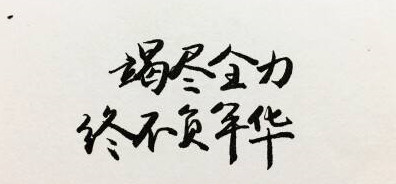 摘要:
Isupposeyouarenotserious,areyou?我想你不是当真吧,是吗?(不可用don'tI?)Wethinktheyhavefinishedtheirhomewo...
摘要:
Isupposeyouarenotserious,areyou?我想你不是当真吧,是吗?(不可用don'tI?)Wethinktheyhavefinishedtheirhomewo... I suppose you are not serious, are you? 我想你不是当真吧,是吗?(不可用don't I?)
We think they have finished their homework, haven't they? 我们认为他们已经完成了家庭作业,不是吗?
I believe that you will enjoy the party, won't you? 我相信你会喜欢这次聚会的,不是吗?
八、当陈述部分是祈使句时,附加部分可以不与前面的祈使句的动词保持一致,而是根据不同的用意选用shall, will, can 等.例如:
Don't make noise, will you? 不要吵闹,行吗?
Let's help each other, will you/won't you? 让我们互相帮助,好吗?
Let me do it for you, will you/won't you? 让我来帮你做这件事,行吗?
Let us have a look at your new dictionary, will you/won't you? 让我们看一看你的新词典,好吗?
〔注〕Let's(包括说话者本人)开头的祈使句,附加部分常用shall we?或shan't we? 表示征求意见. Let us/me/him不包括听话人在内开头的祈使句,附加部分则要用will you?或won't you?
倒装句
A. 在疑问句中
各种疑问句一般地说都是倒装语序.例如:
Will they come to see us this weekend ? 这个周末他们将来看我们吗?
Are you talking about the film you saw last Monday ?
你们是在谈论你

们上周一看的那部电影吗?









